"This conflict is made up of thousands of individual tragedies"
by Béatrice Butsana-Sita
Béatrice became our CEO in November. Four months later she was in the Middle East, meeting people caught up in the most devastating and complex conflict in recent memory.
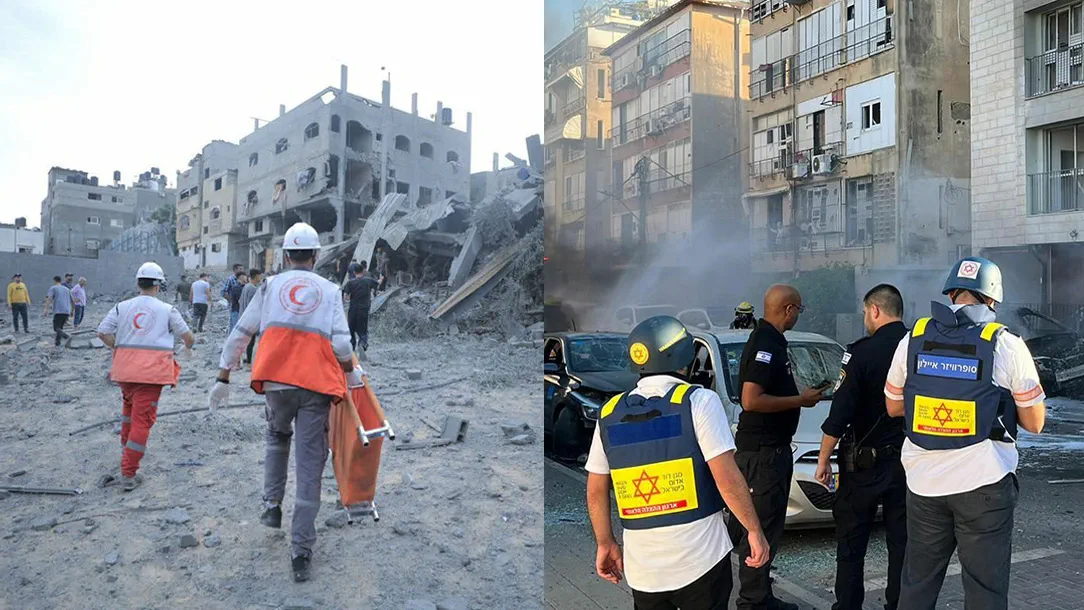
“From the start of the conflict, The British Red Cross has done all we can to support our Movement partners in Israel, Gaza and the West Bank, providing funding as well as expert staff. We wish we could do more.
To say that our hearts break, for people on both sides of the conflict, feels inadequate. But it is true.
I recently visited Ramallah and Hebron in the West Bank, and Tel Aviv, Sderot, and Kibbutz Be’eri in Israel. I heard from people In Israel grieving those killed and longing to have news of, and be reunited with, loved ones still held hostage.
I saw the individual and personal impacts of this conflict on communities across the West Bank. I heard directly from colleagues in Israel and the West Bank how the conflict has impacted them both personally, and in their work.
When we see the conflict play out on the international stage, it's easy to forget that it's made up of countless individual tragedies.
Families have been torn apart, futures ripped away, and lives lost. Six months on, and we must keep them in mind, along with the aid workers who risk, and lose, their lives daily.
People like our colleagues in Magen David Adom (MDA) in Israel and the Palestine Red Crescent Society (PRCS) in Gaza and the West Bank, whose work I was privileged to witness.
As local and national responders, both the MDA and PRCS have a trusted relationship with their local communities and a unique ability to provide far-reaching humanitarian and medical services.
This has proved essential in the current emergency and will do so for recovery in the future.
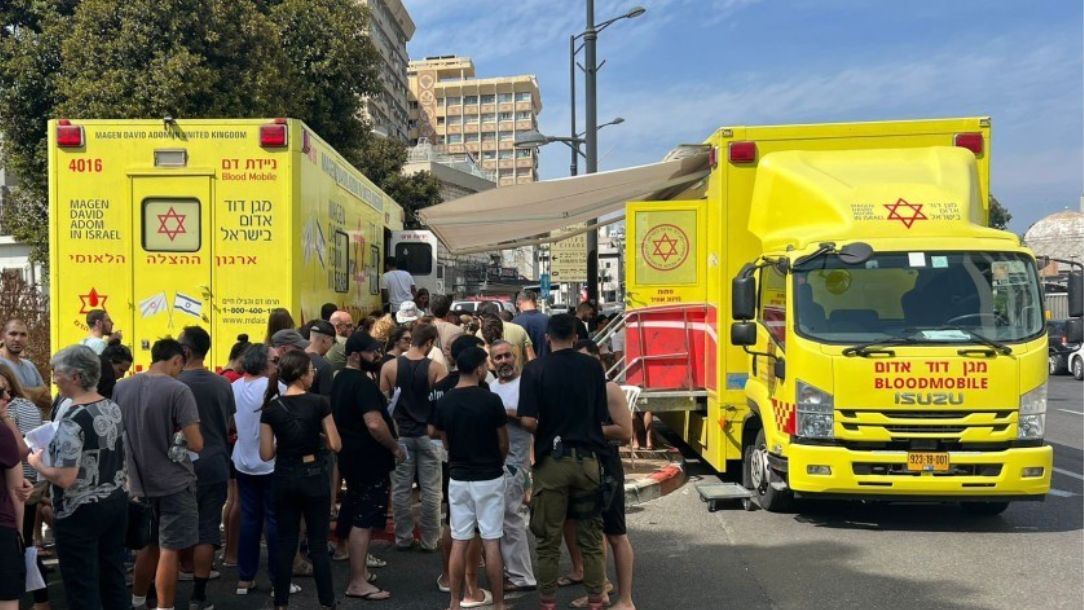
People queued to give blood to the Magen David Adom-run blood bank, after the atrocities in Israel. PHOTO: Magen David Adom
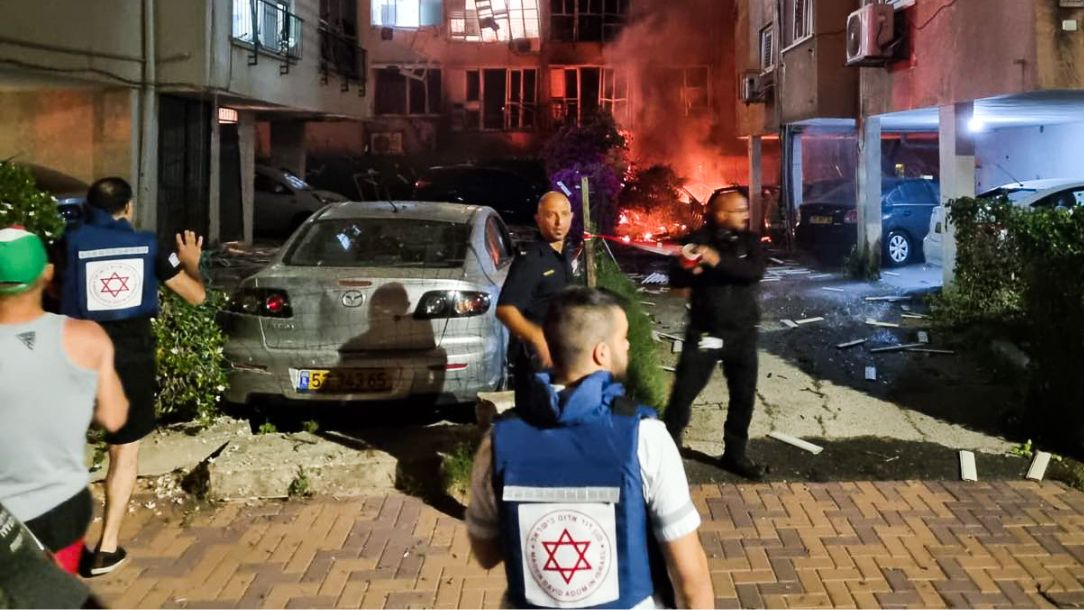
MDA medical teams responding after a residential building was struck in Petah Tikva on 7 October. PHOTO: Magen David Adom
“In Israel, emotional scars run deep”
Every person I met in Israel, including our MDA colleagues, was deeply affected by the horrific events of 7 October. More than 1,200 people died, and nearly 200 taken hostage. People there are grappling with profound trauma.
One highly experienced MDA volunteer, who responded in the first few hours of the tragic events, simply told me:
Nothing could have prepared me for what I saw.
I also heard the word ‘guilt’ a lot. Guilt for having survived when others didn’t, guilt for not being present to respond directly when other colleagues were.
One paramedic lost his partner on 7 October. He was not with her as he had been deployed as part of the MDA’s emergency response that day, and now lives with profound guilt, along with his grief.
But while emotional scars here run very deep, I was struck by MDA’s unwavering commitment to support communities. From the ambulance drivers, to the psychosocial support volunteers and emergency medical support volunteers, who remain at the heart of the response in Israel.
Finally, I visited the MDA-run blood bank. It is an incredibly impressive operation, collecting and providing blood donations for the entire country.
Israel is still hurting from events on 7 October. Families are worried sick, waiting for news of their loved ones, who are still being held hostage.
As a Movement, we have repeatedly called for access to those held hostage, so we can check on their wellbeing, deliver aid and allow them to exchange messages. We haven’t yet been granted access, but we're ready to support.
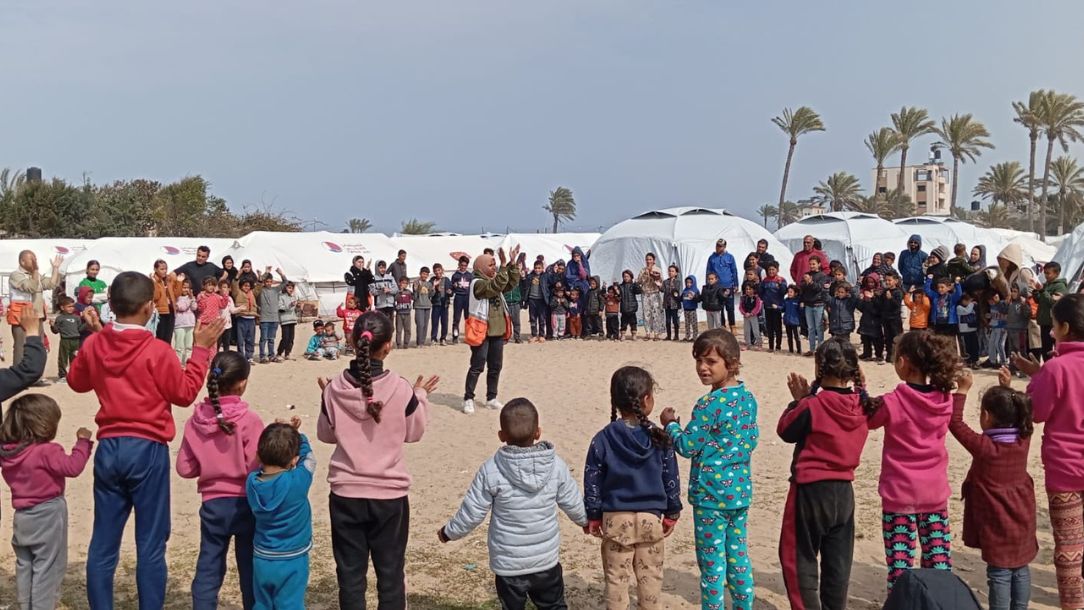
PRCS teams in Occupied Palestinian Territories try to bring a moment of normalcy to children caught up in conflict. PHOTO Palestine Red Crescent.
“In the West Bank, people just want their children to be safe”
Throughout the conflict, tensions in the West Bank have steadily risen. More than 430 people have died and 4,690 have been injured. This is alongside the 32,600 people killed in Gaza, and the 1.5 million people living on a tiny stretch of land.
Visiting the ambulance dispatch and operations centre of the Palestine Red Crescent Society, we heard how call takers helped deliver babies by phone, when ambulances were unable to get there.
We also heard how the conflict has created 1,500 child amputees under five years old.
At every turn, I was struck by the dedication and fortitude of the PRCS staff.
In Ramallah, I visited a Palestine Red Crescent Society run centre for children, providing psychosocial support activity. Despite everything, I saw moments of joy and laughter.
One girl, who was only eight or nine, led the group as they performed a song about humanity, and unity – two of our fundamental principles, which even in the most difficult of times guide us in our humanitarian work.
It was inspiring to see the joy this brought to the children, even as the younger ones struggled to stay in step with the eldest!
I also spent some time at a school for children with impaired or no hearing. This school, run by PRCS, offered young children a standard education, all the way through to 18 years of age.
It demonstrated for me in a very real way, the value and reach of PRCS in their communities. They offer some stability and normalcy during incredibly challenging times. This is despite being affected by conflict themselves.
One colleague’s work journey has gone from 10 minutes to hours, due to additional security and checkpoints. Others have to sleep at the offices, with no way of going home.
But more than anything, the PRCS colleagues I spoke to are just worried about keeping their families safe. One conversation in particular really stuck with me.
“We don’t think our children are better than anyone else’s,” a colleague said. “We just want them to be safe and to have as normal a life as possible.
The British Red Cross will be there as long as needed
Throughout my visit, it was clear to me that aid alone will not solve the crisis, but increased aid will save lives.
The Red Cross and Red Crescent Movement, including the British Red Cross, will continue to work tirelessly to help all those that it can.
From facilitating aid deliveries at the Rafah border, to providing emergency health assistance in Gaza, to advocating for the release of hostages.
Together, we will continue to do all we can to respond to this devastating situation, for as long as we are needed."
You might also like...
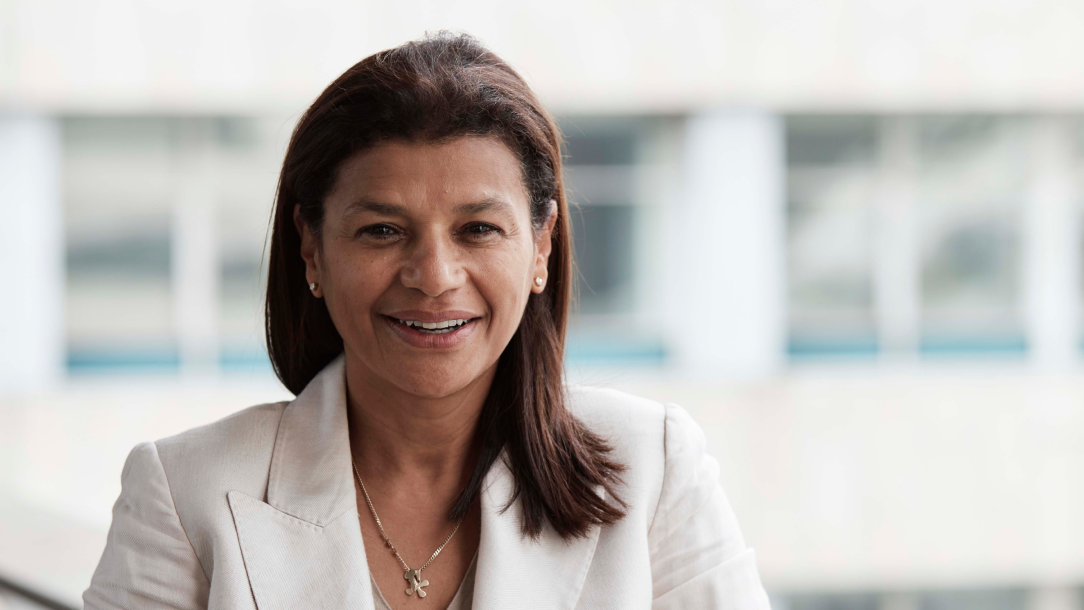
Béatrice Butsana-Sita
Chief executive of the British Red Cross
Israel and Occupied Palestinian Territory Appeal
Help us provide medical support to people affected by the crisis in Israel and Occupied Palestinian Territory. The situation is critical.
DONATE NOW